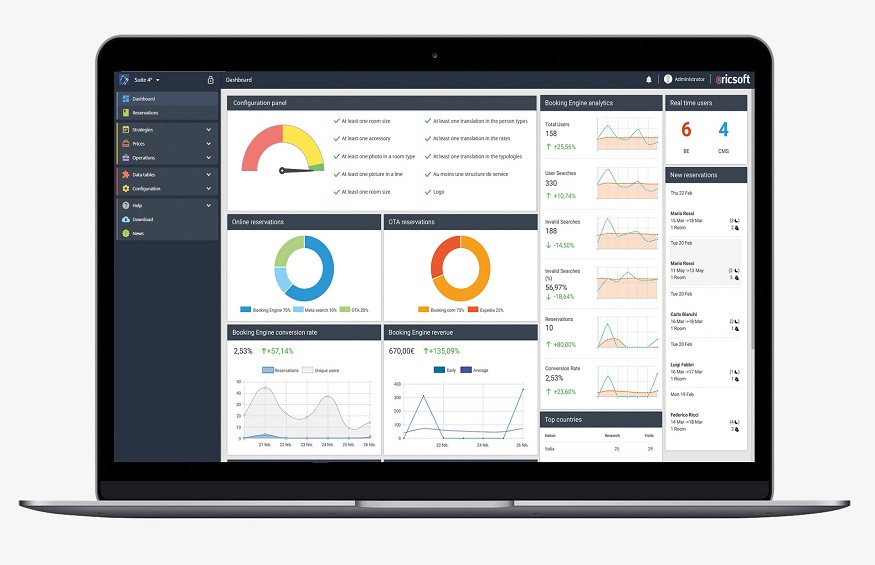In today’s digital world, managing network infrastructure and performance has become crucial for businesses to stay competitive. With the increasing number of online transactions, the ability to accurately identify the location of network endpoints has become essential. This is where IP geolocation data plays a critical role. By leveraging IP geolocation databases, businesses can identify the physical location of an IP address and find the city associated with it. This information can help businesses take actions to improve network performance. In this blog, we will explore the significance of IP geolocation data in network infrastructure and performance management, along with the best IP geolocation databases available in the market for finding the city by IP address.
What is IP Geolocation Data?
IP geolocation data refers to the physical location of an IP address on the internet. It involves mapping an IP address to a physical location, such as a country, state, city, or even a specific street address. This data is gathered using various techniques, including GPS, Wi-Fi triangulation, and cell tower triangulation. IP geolocation data is an essential tool for businesses that rely on the internet for their operations, as it enables them to track and monitor network performance across multiple locations.
Find City By IP Address
One of the most common uses of IP geolocation data is to find the city or region associated with an IP address. This information can be used to track user behavior and target specific locations for marketing purposes. For example, an e-commerce website might use IP geolocation data to display products or services that are relevant to the user’s location. Additionally, IP geolocation data can be used to detect fraudulent activity, such as when a user attempts to make a purchase from a location that does not match their billing address.
Best IP Geolocation Database
There are several IP geolocation databases available in the market, each with its own set of features and benefits. Some of the most popular IP geolocation databases include MaxMind, IP2Location, and GeoIP. These databases offer accurate and reliable data that can be used for a variety of purposes, including network infrastructure and performance management. When selecting an IP geolocation database, it is important to consider factors such as accuracy, reliability, and ease of integration.
Benefits of IP Geolocation Data in Network Infrastructure and Performance Management
Now that we have a basic understanding of IP geolocation data, let’s discuss the benefits of using this data for network infrastructure and performance management.
Network Monitoring and Troubleshooting
IP geolocation data can be used to monitor network traffic across multiple locations, enabling businesses to identify and troubleshoot performance issues quickly. By tracking the physical location of an IP address, network administrators can identify patterns and trends in network traffic, such as peak usage times or locations with the highest traffic volume. This information can be used to optimize network infrastructure and ensure that resources are allocated where they are needed most.
User Experience Optimization
IP geolocation data can also be used to improve the user experience by delivering localized content and services. By identifying the user’s location, businesses can deliver content that is relevant to their interests and preferences. For example, a travel website might use IP geolocation data to display flights and hotels that are available in the user’s location. This not only improves the user experience but also increases the likelihood of conversion.
Fraud Detection and Prevention
IP geolocation data is also an effective tool for detecting and preventing fraudulent activity. By tracking the physical location of an IP address, businesses can identify suspicious activity, such as multiple account logins from different locations or high-value transactions from unexpected locations. This information can be used to flag potential fraudulent activity and take appropriate action to prevent it.
Compliance and Regulatory Requirements
Many businesses are required to comply with regulatory requirements related to data privacy and security. IP geolocation data can be used to ensure compliance with these requirements by tracking the physical location of data and ensuring that it is stored and processed in accordance with applicable laws and regulations.
Conclusion
The role of IP geolocation data in network infrastructure and performance management cannot be overstated. The ability to identify the physical location of network endpoints and find the city associated with it allows businesses to optimize network performance, improve security, and enhance the customer experience. The market offers several IP geolocation databases, each with its own set of features and capabilities, for finding the city by IP address. When choosing the best IP geolocation database for your business, it is essential to consider factors such as accuracy, reliability, and pricing. We recommend checking out DB-IP, a leading provider of IP geolocation data with high accuracy, reliability, and affordable pricing. By leveraging the power of IP geolocation data, businesses can stay ahead of the competition and deliver superior online experiences to their customers.





